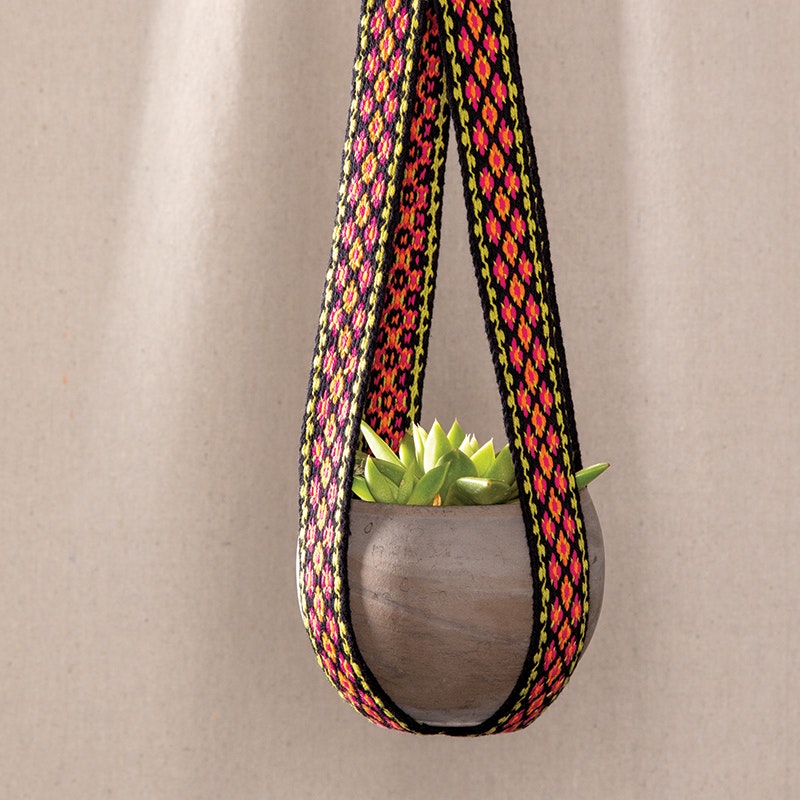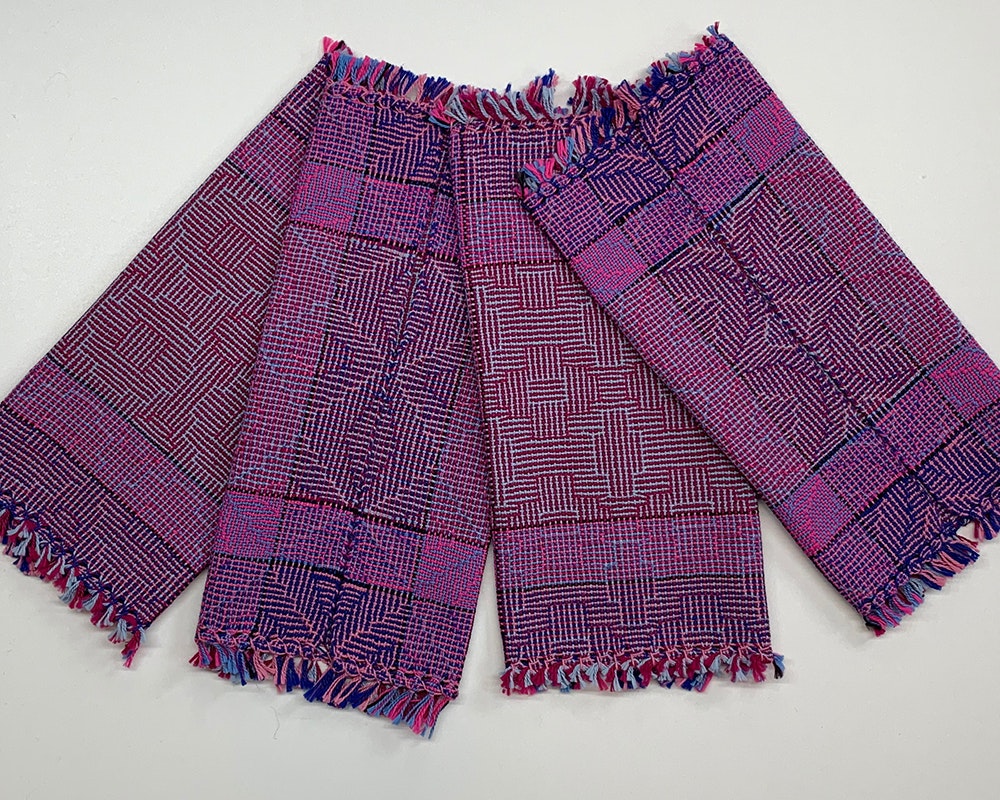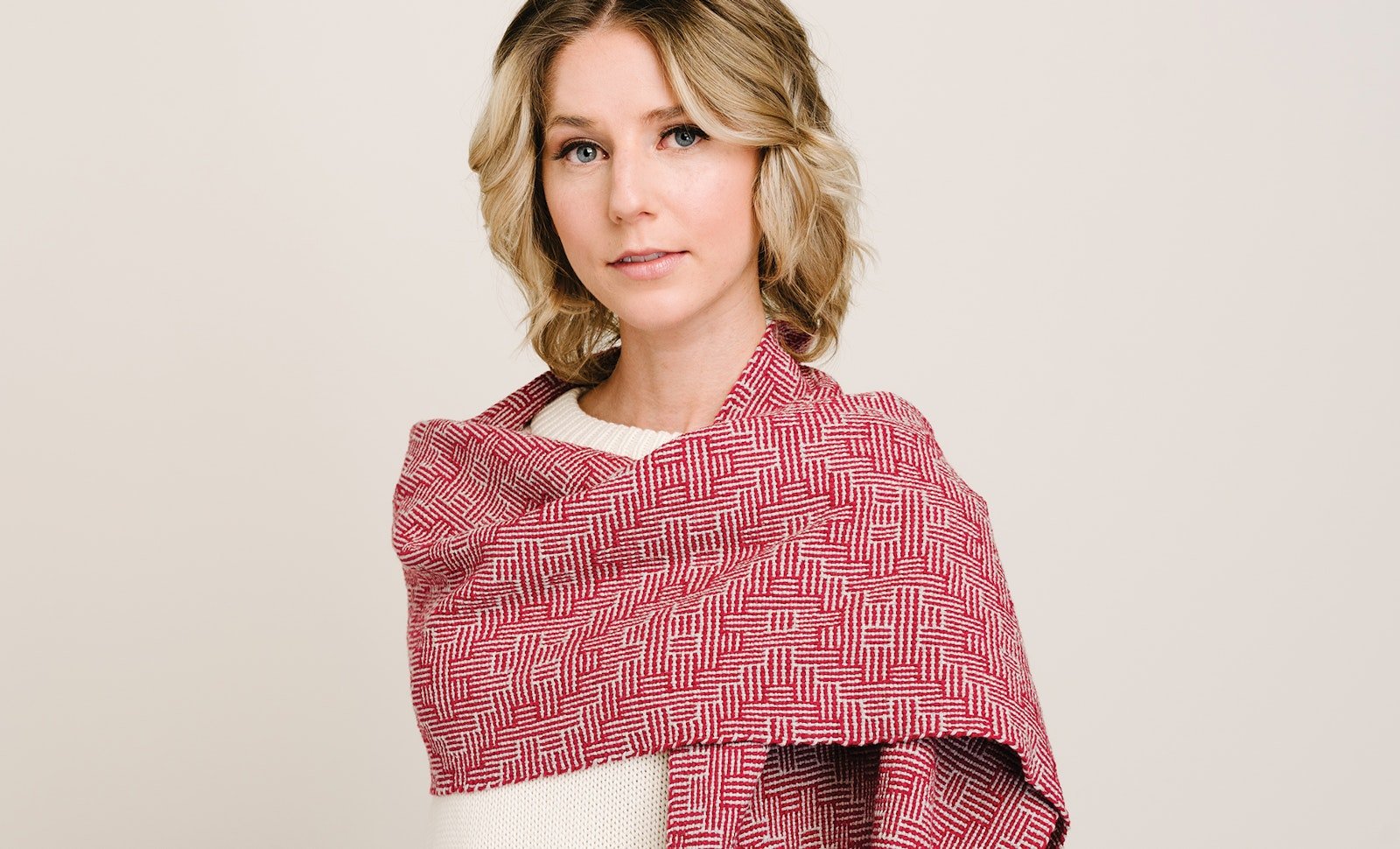This is the first of a 3-part series by Barbara Goudsmit about her experiences weaving and designing for Handwoven and Little Looms and what it has taught her. —Susan
I still remember the first weaving design that I developed on my own. It was the spring of 2018, about 6 months after my first encounter with a floor loom. After hours of experimentation, I finally managed to apply the basic rules of shadow weave in a star-shaped pattern. I vividly remember the feeling of satisfaction. Without touching a single thread, I had created a pattern that I was sure was going to make a beautiful scarf. That was the moment I truly fell in love with handweaving.
I haven’t stopped designing since that moment, and I am proud to say that some of my designs have been published in Handwoven and Little Looms. Actually, that first shadow-weave design was the basis of the Polaris Shawl that was in Handwoven January/February 2020, my first published design in Handwoven. Designing for the magazines is fun, and even better, it has helped me grow as a designer and weaver.
In the summer of 2018, I saw a Call for Submissions for Little Looms Summer 2019. I was intrigued; I had no idea Handwoven and Little Looms were open to proposals from regular handweavers like me! I decided to give it a go. One of the themes for the issue was “Downtown.” This inspired me to use the flag of Amsterdam, the capital of my home country, as a starting point for a tablet-woven design. I made the woven band into a yoga strap, with the idea of incorporating peace and quiet into the downtown way of life. I enjoyed working on this theme-inspired project.

The theme of “Downtown” inspired Barbara to weave a yoga strap for the urban yogi. Photo by George Boe
To my great surprise, Christina Garton emailed me a couple of weeks later to tell me that my yoga band had been chosen for Little Looms. The feeling of excitement and recognition was incredible! Since then, I have submitted designs for almost every issue of both magazines. Of course, not all of my proposals have ended up making the final cut, but nonetheless, I’ve enjoyed working on all of them.
The magazine themes inspire me to approach designing in a new way. I come up with designs I don’t think I would have come up with without the themes. For me, it is not only about getting my project published in a magazine but even more about expanding my weaving and designing abilities. Here are the stories behind two of my recent designs.
For Little Looms Summer 2021, I designed a tablet-woven plant hanger. The “Home and Garden” theme prompted me to see whether I could make a handwoven item that brought a little touch of a garden into your home. After playing around for a good while with one of my previously woven straps, I ended up with a simple design for a potted plant hanger. I don’t think I would have tried to do this if it the theme hadn’t prompted me to experiment.

Barbara’s Plumeria Plant Hanger from Little Looms Summer 2021 was an ingenious way to bring the outside in. Photo by Matt Graves
Not only did I come up with a new, fun application for handwoven straps, but the project also inspired me to try out new colors. Originally, I went with my go-to colors for the design: pastel shades of purple and pink. Christina Garton suggested I broaden my palette and give bright orange a try. Out of all the colors on the color wheel, yellow and orange are the farthest out of my comfort zone. Nonetheless, when I replaced my original colors with bright pink and orange, I immediately understood why Christina made the suggestion. In the end, the plant hanger made me push the limits of both my design capabilities and my color palette.
For Handwoven May/June 2021, I designed and wove a set of handkerchiefs. The handkerchiefs weren’t picked for the magazine, but that doesn’t make me like them any less. The “Plaids and Checks” theme of the issue made me think about a new way to apply shadow weave. I have designed and woven many projects in shadow weave, yet incorporating plaids and checks in a shadow-weave design had never occurred to me. To capture the spirit of plaids and checks, I used 7 colors to obtain a grid of different color combination blocks. This design incorporates more colors than any shadow-weave design I have made before, and I love how the colors interact.

Barbara’s handkerchiefs weren’t accepted for the May/June 2021 issue of Handwoven, but that doesn’t diminish their beauty. Photo by Barbara Goudsmit
I also made my design work for both 8-shaft and 4-shaft looms, specifically because it was a Handwoven proposal. I wanted the design to be adaptable to the different needs of different weavers, so I made an 8-shaft draft that could be simplified to 4 shafts. Figuring out how to weave both designs using the same warp and threading on my 8-shaft loom was quite the challenge. I thoroughly enjoyed solving this puzzle, and it greatly expanded my understanding of the shadow-weave structure.
The 2022 editorial calendar for Handwoven was recently released, and my mind is already buzzing with ideas based on its themes. Submitting proposals for Little Looms and Handwoven is fun. Even more, I honestly believe that doing so helps me grow as a designer and weaver. If you are ever in need of design inspiration, I highly recommend taking a look at the editorial calendar.

